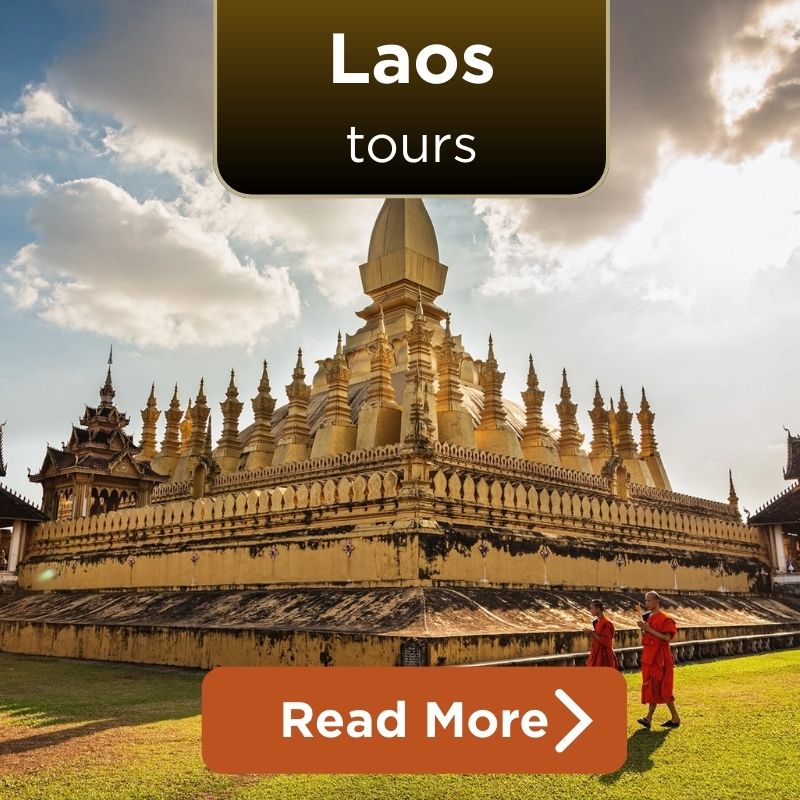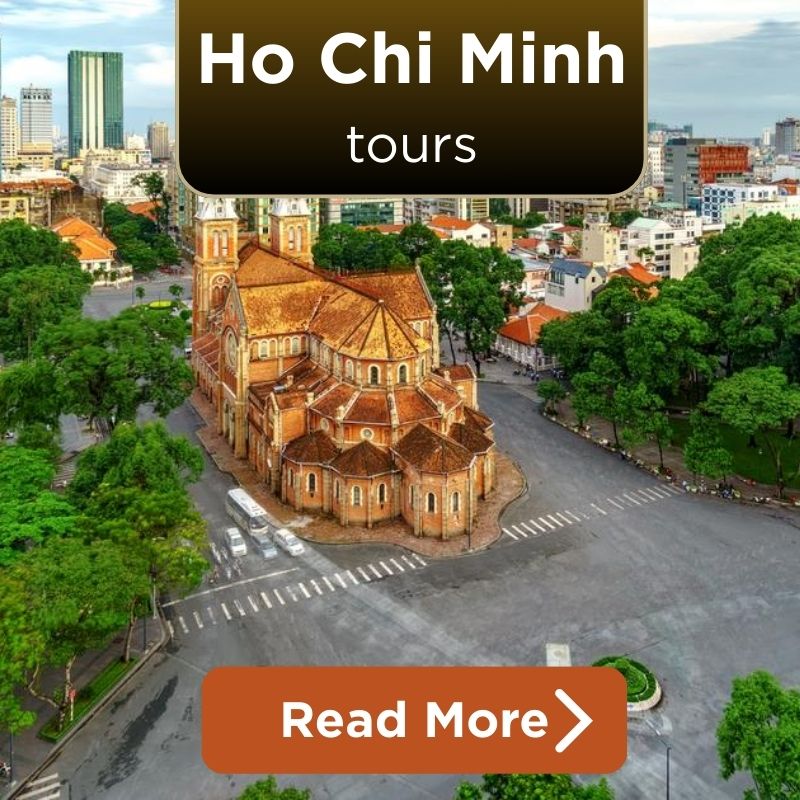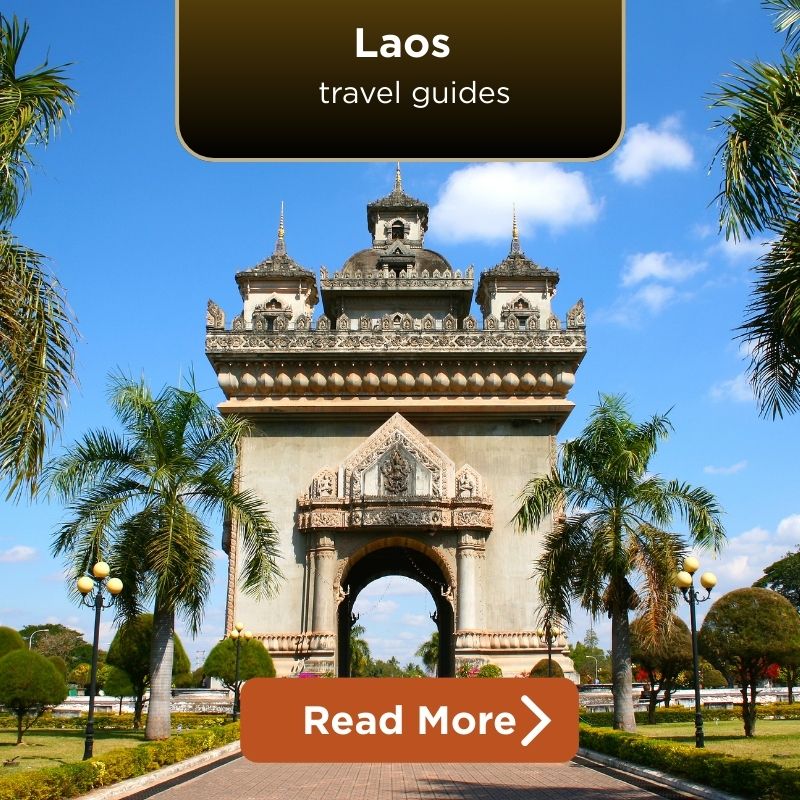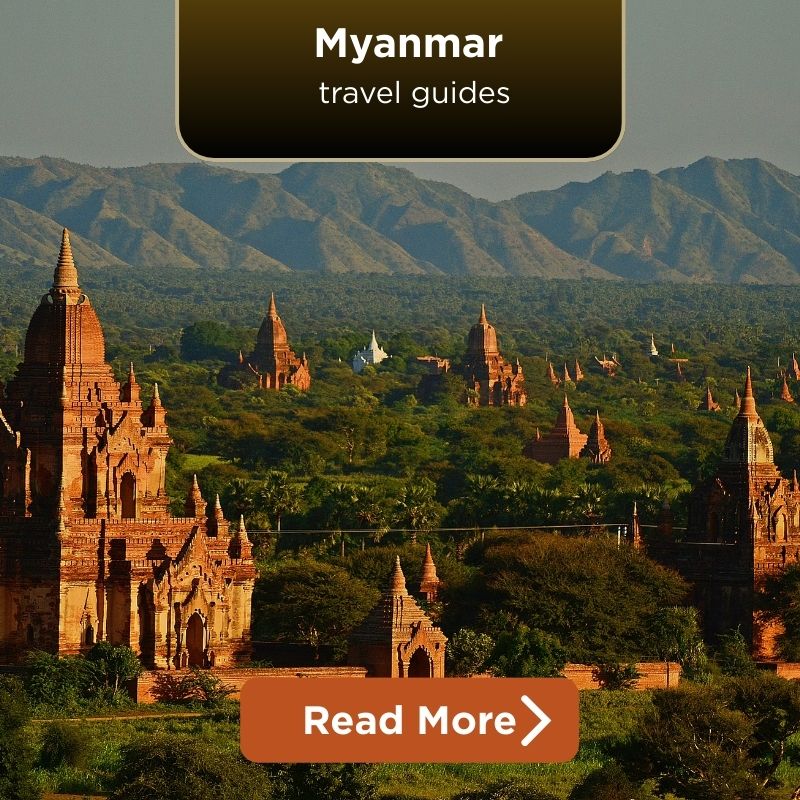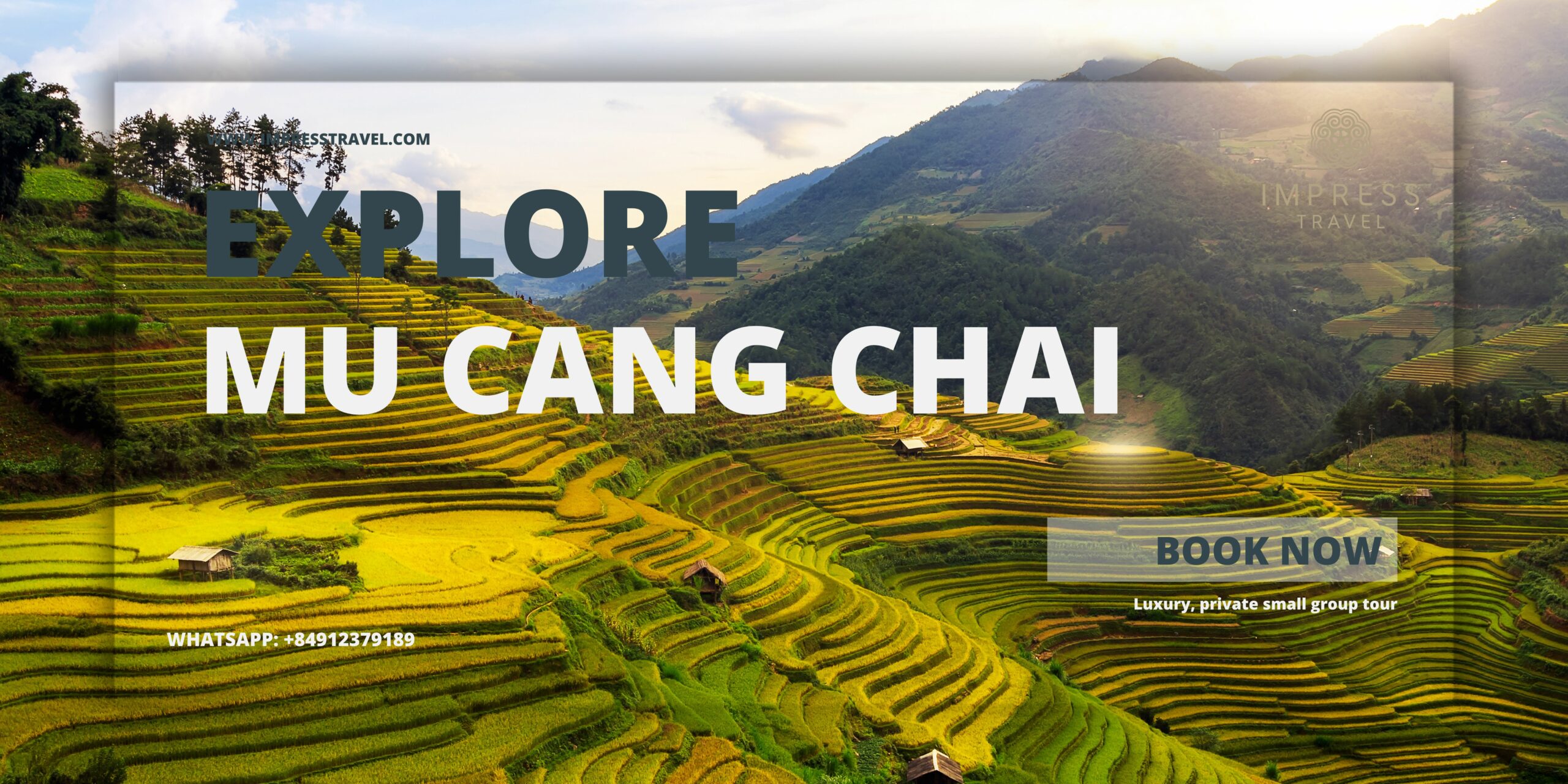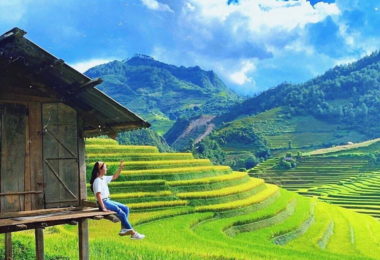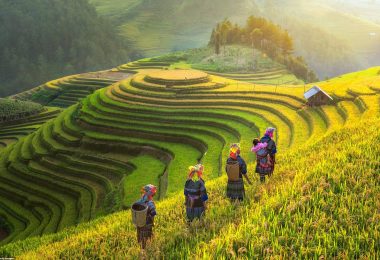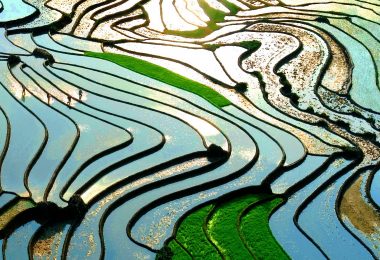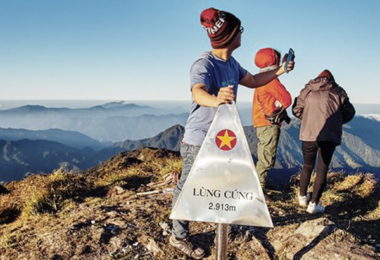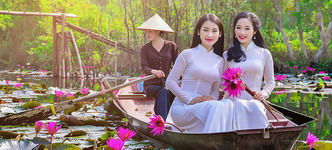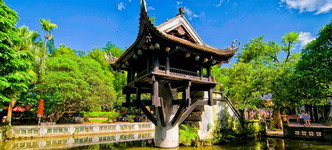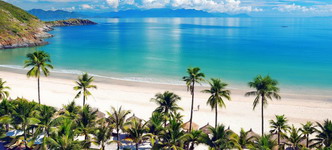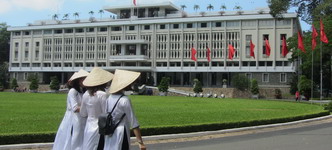Mu Cang Chai Climate Overview: What You Should Know
Temperature Patterns Year-Round
- The annual average temperature in Mu Cang Chai is around 19.6°C, which is lower than that of most other destinations in Vietnam.
- The hottest period runs from May to July, with daytime temperatures occasionally reaching 35–39°C, especially in lower valleys. If you’re visiting Mu Cang Chai in May, expect bright sun during the day and cooler evenings.
- The coldest months are December and January, when temperatures can drop to 0–10°C. High-altitude areas may see frost or light freeze in the early morning hours.
Rainfall & Humidity by Season
- The rainy season is from April to September, with May to August being the period with the most rainfall. It is at this time that the rice terraces are irrigated and seeded, giving stunning reflections on the water—a treat for photographers and culture seekers.
- The dry season is from October to March, with pleasant weather and sunshine, especially during Mu Cang Chai in September, the time of peak harvest.
- Humidity is 55% to 75%, most in the summer months of June and July. The humidity encourages thick growth of rice, but requires breathable clothing and rain protection of a light nature.
Unique Weather Events
The weather in Mu Cang Chai is occasionally marked by unusual but fascinating atmospheric phenomena:
- Frost: Often present in January in the higher elevations; spreads over grass and roofs with a light sheen.
- Cold dew (suong muoi): Common in winter mornings; makes early trekking scenic but hazardous.
- Fog: Common in spring and autumn, especially in the early morning. It slowly clears to reveal breathtaking layered terraces.
- Drizzle or hail: May occur in overlapping months like late April or early October. These are brief but worth planning for.
Month-by-Month Weather Guide & Travel Tips
January – Cold, Misty & Festive
- Temperature: 10°C to 20°C
- Weather: Cold mornings, dry skies, light frost possible in high areas
Mu Cang Chai weather in January is calm and cool, suitable for the traveler who enjoys cultural richness and seasonal beauty. Early in the year is filled with ethnic spring festivals, where minority folk gather in traditional attire to welcome Tet (Vietnamese Lunar New Year).
As the cherry blossoms (hoa To Day) bloom everywhere across the hillside, the month transforms Mu Cang Chai into a delicate spring scenery. The air is serene, and the hill country air is fresh and clean.
Experience Highlight:
- Join New Year festivals and market days in villages like La Pan Tan or Che Cu Nha
- Capture frost-tipped rice terraces blanketed with fog in morning shots
Travel Tip: Dress in warm, layered clothing. While the day is pleasant and cool, mornings and evenings reach as low as 10°C.
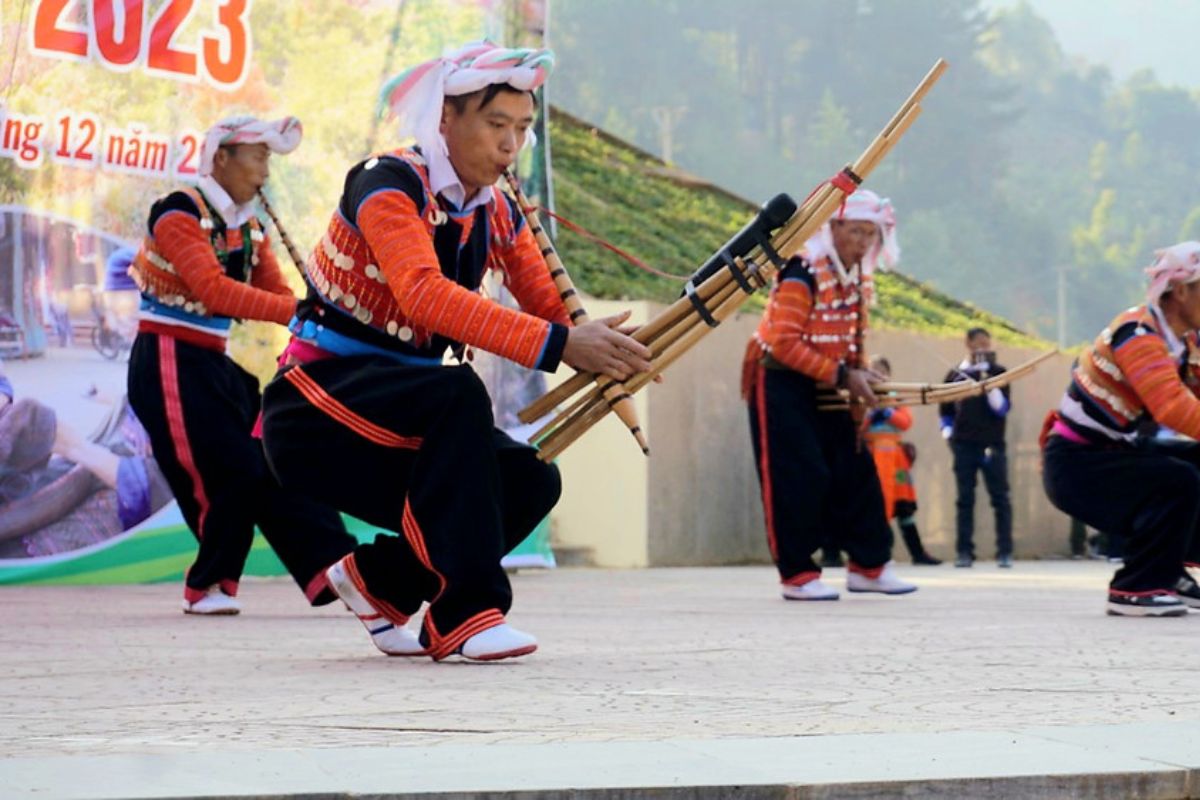
Spring Festival in January (Source: dantocmiennui)
February – Gentle Sunshine & Early Blooms
- Temperature: 13°C to 23°C
- Weather: Mild, drier skies, foggy mornings turning into sunny afternoons
In February, the climate of Mu Cang Chai becomes warmer. Sunlight stays longer, valley floors are gently tickled green with flowers, and tree blossoms bloom. Rain remains a rare occurrence, and it’s ideal for trekking far and soaking up the scenery of serene villages.
Experience Highlight:
- Witness early spring blooms in full flower—the ideal time for slow travel and photography
- Enjoy serene paths before others flock to them in subsequent months
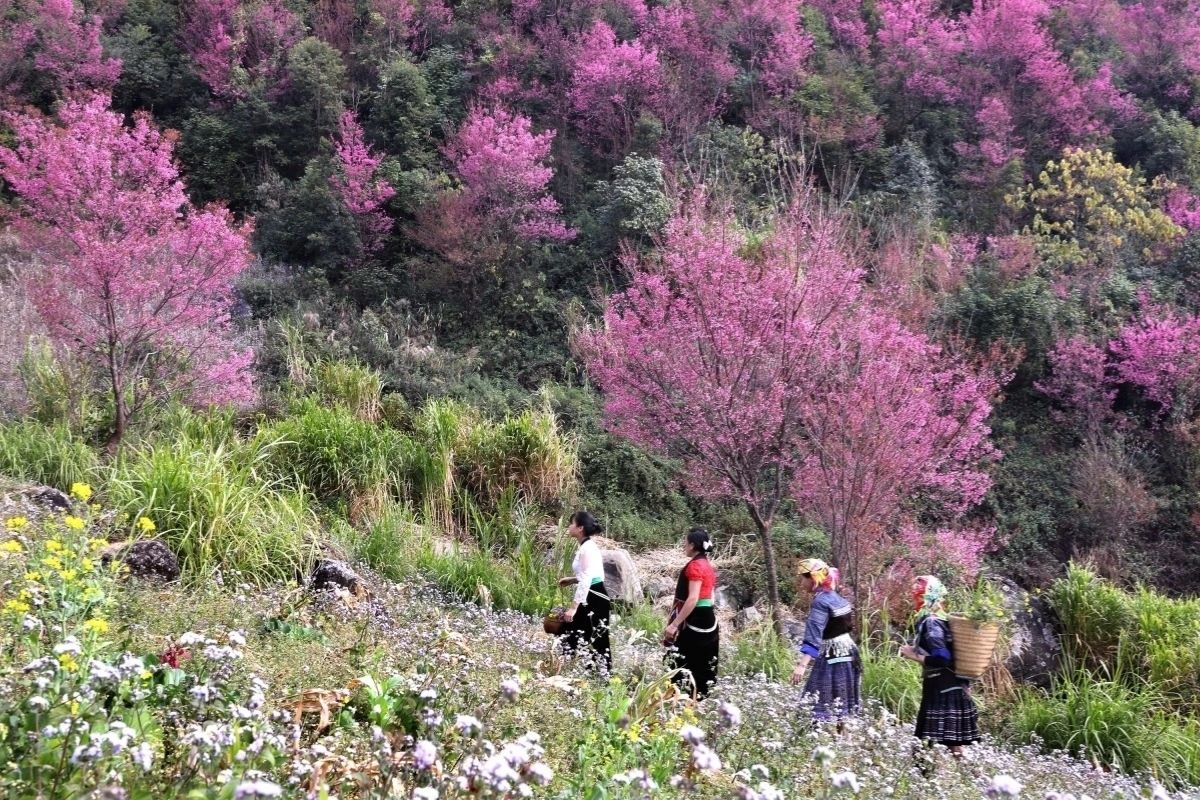
Peach Blossoms Bloom Early February (Source: vov)
March – Clear Views & Trekking Weather
- Temperature: 18°C to 26°C
- Weather: Warm and dry, excellent visibility, very low rainfall
For those of you who are looking for the balance in your trip, keep in mind that Mu Cang Chai weather in March kind of hits the sweet spot. The skies are clear, but temperatures aren’t too high, perfect for trekking, village visits, and panoramas.
The terraces are still visually striking, even though rice hasn’t been planted. Mountain shadows, light green sprigs, and earth tones create artful contrasts all day.
Experience Highlight:
- Hike half-day or full-day trails to Lim Mong, La Pan Tan, or Ban Thai
- Yes, more often than middays. Even sunrise and sunset provide the best light in landscape photography
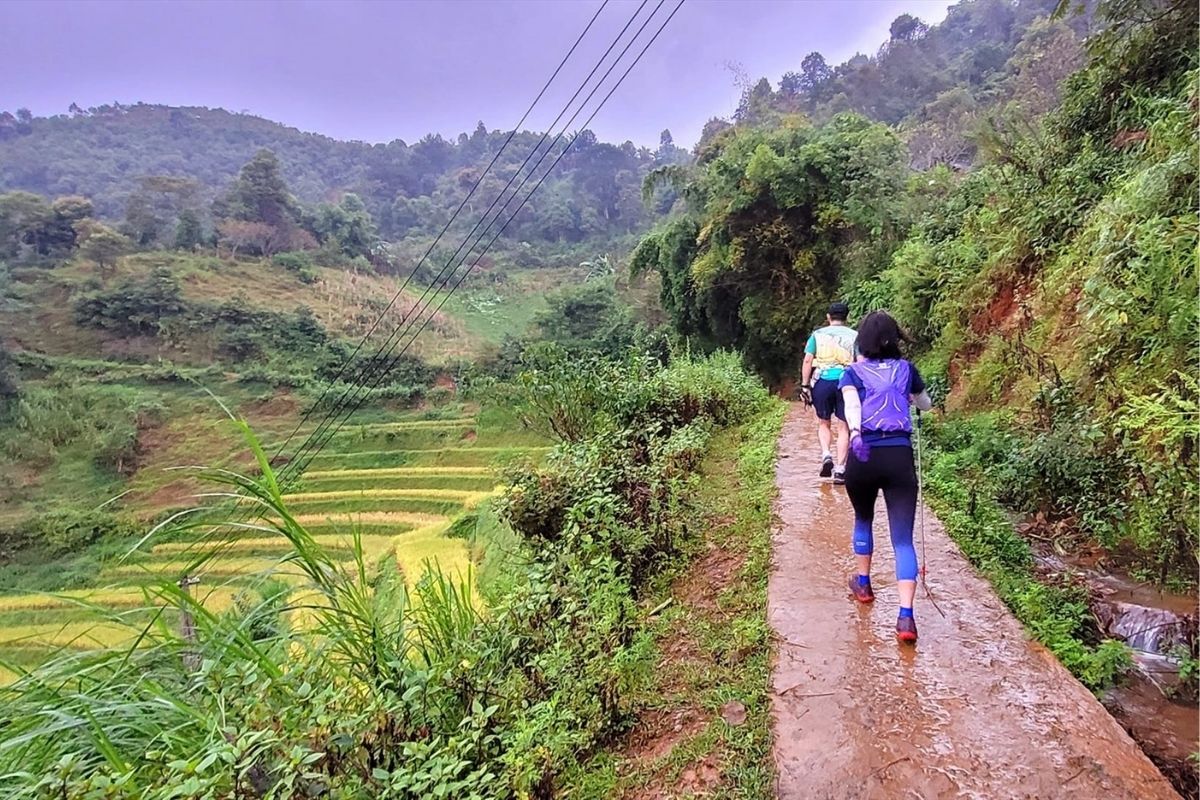
Hiking to Lim Mong in March (Source: laodong)
April – Start of the Water Season
- Temperature: 20°C to 28°C
- Weather: Mild and partly cloudy, occasional light rain, rising humidity
The weather in Mu Cang Chai starts to shift in April. The semifurtive days of spring are dominated by the first rains, and the onset of the water season — an explosively attractive period when farmers first flood their stages in anticipation of the rice planting.
When the rain comes, the rice terraces in this part of northern Vietnam shimmer in spectacular fashion. “They’re like mirrors,” Tuyet said. It is a magical time of transformation in the agricultural cycle, and locals call it “mua do ai.” Quiet trails, brilliant vistas, and minimal hiker traffic — this is your month.
Experience Highlight:
- Witness the effect of “mirror fields” at La Pan Tan and Che Cu Nha at sunrise or sunset
- Trek past villages where farmers start to plant and repair terraces
Travel: The air is warm and pure, but be ready to hide from occasional afternoon drizzles. Rely on the daily Mu Cang Chai weather forecast, updated daily.
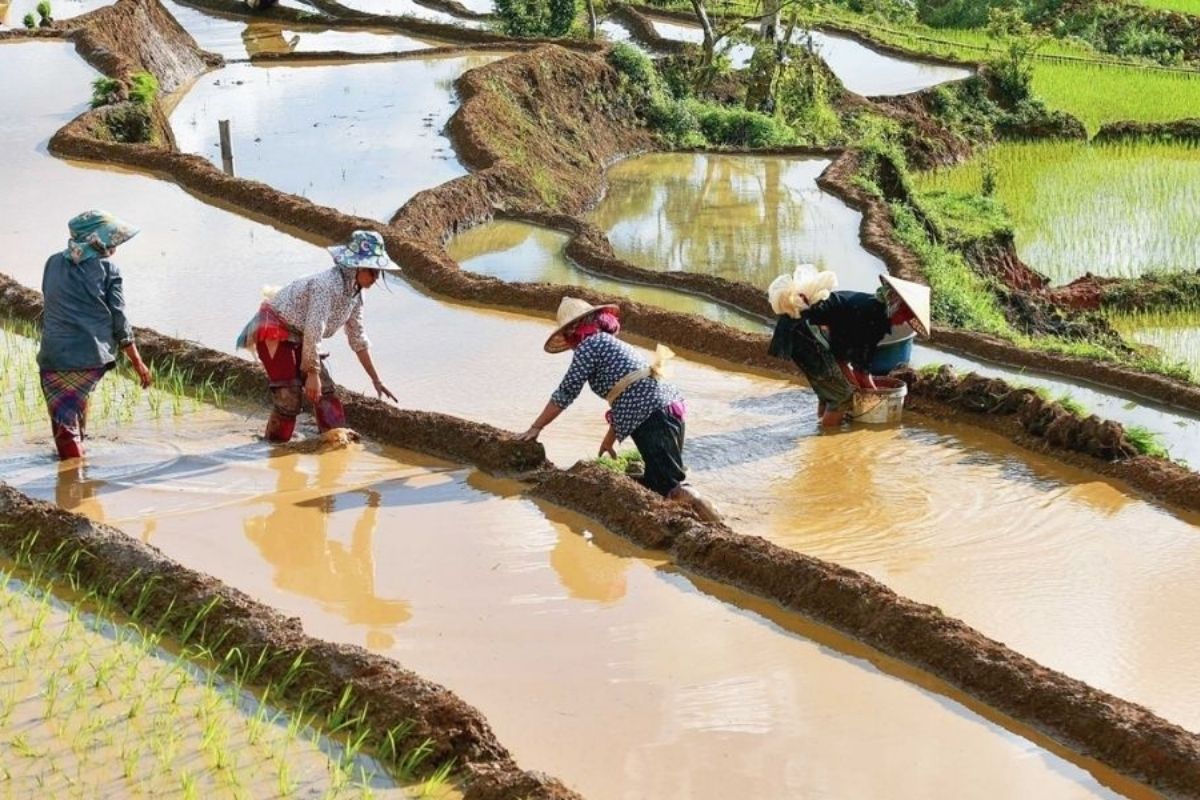
Farmers Tending the Fields in April (Source: anabasrestaurant)
May – Stunning Water-Filled Terraces
- Temperature: 22°C to 30°C
- Weather: Warm, humid, increased rainfall, clear mornings, and misty afternoons
If you are a nature enthusiast or photographer, Mu Cang Chai in May will leave you breathless. This peak water season is at its best. Following intense preparation in April, the terraces are now fully supplied and overflow with glimmering pools of water reflecting the sky, mountains, and a few wooden shacks scattered around.
The weather in Mu Cang Chai this month is warming up and raining more, especially in the afternoon. But do not let this dampen your spirits—morning time is mostly dry and crystal-clear, excellent for wandering and taking pictures.
Experience Highlight:
- Witness the “silver staircases" from elevated viewpoints in La Pan Tan and De Xu Phinh
- Experience the local rhythm of life as villagers work knee-deep in water with water buffaloes and hand-spade tools
Travel Tip: Bring rain gear and sturdy shoes for muddy trails. The ground will become wet, but it is still easy to traverse. Be sure to look up the weather forecast in Mu Cang Chai the night before your escapades.
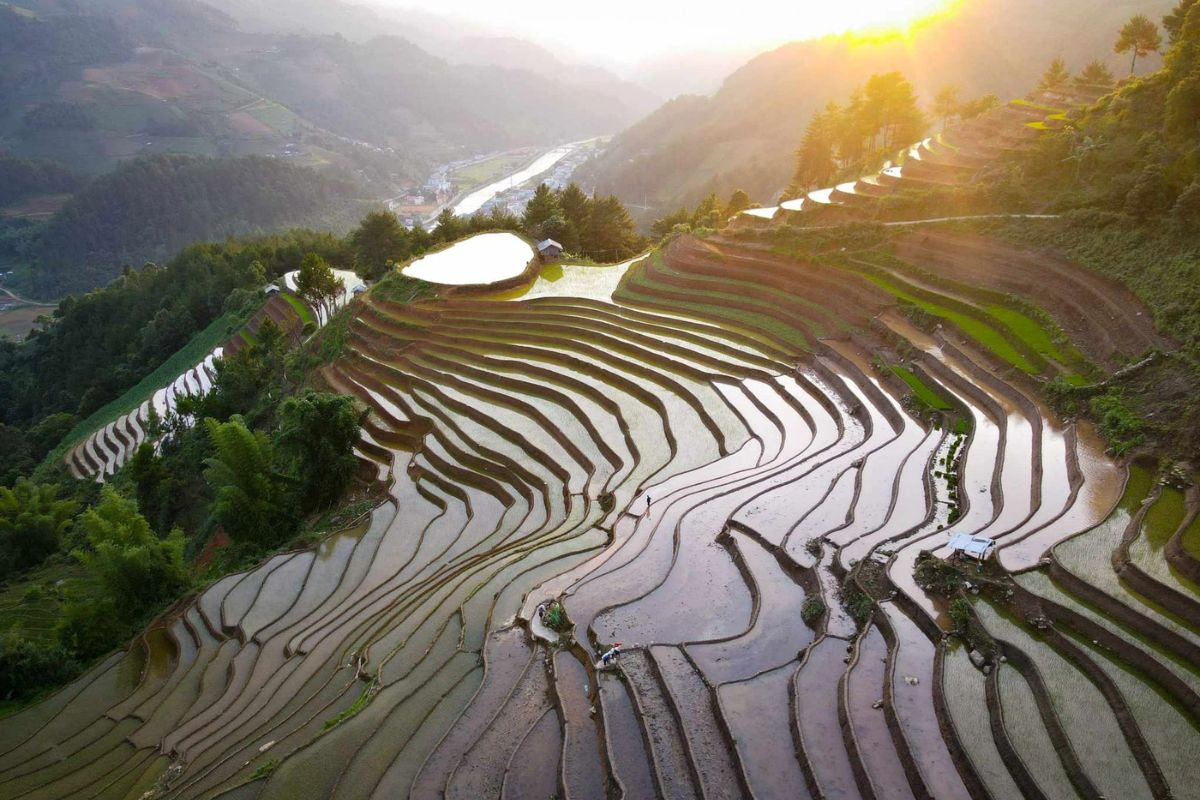
Flooded Rice Terraces in May (Source: thanhnien)
June – Green Layers Begin
- Temperature: 24°C to 32°C
- Weather: Hotter days, frequent afternoon showers, high humidity
June is the first major transformation of the landscape. Because of May’s rains, rice has been planted and is growing fast. Those that were filled with water earlier now begin to appear green, like the layers of a cake spreading through the mountains.
The Mu Cang Chai climate during June is hotter, especially midday, and frequent short bursts of rain cool things down in the late afternoon. It’s also one of the quietest months for tourism, making it perfect for travelers looking for authenticity and lower prices.
Experience Highlight:
- Trek through lush green fields in Ban Thai and Lim Mong
- Visit local homestays and join farmers in their daily work if you’re staying longer
Travel Tip: Plan your outdoor excursions in the early morning. Pack light, breathable clothing, and have a raincoat or poncho handy. It’s a budget-friendly season to travel with abundant room in homestays and fewer trekkers on trails.
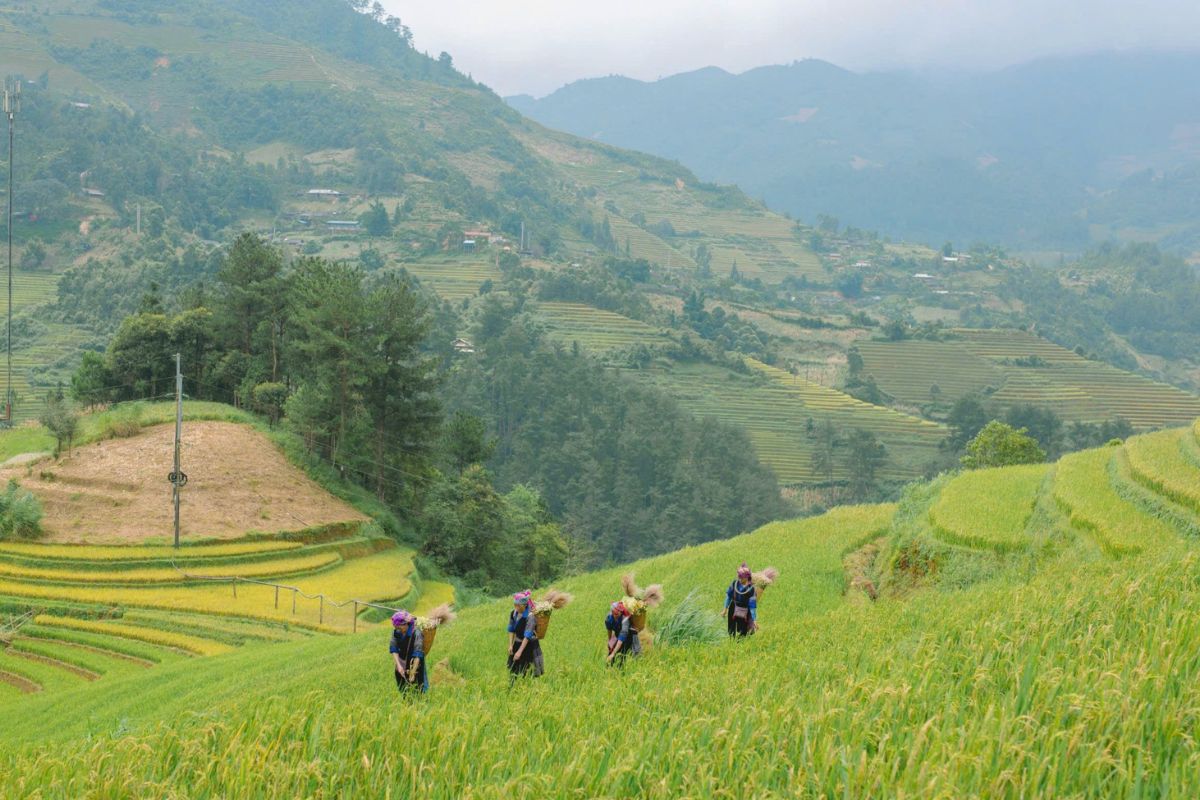
Trek Lush Fields in Ban Thai in June (Source: phunuonline)
July – Lush, Tropical & Local
- Temperature: 25°C to 33°C
- Weather: Hot and humid, daily short rains, vibrant green landscapes
July in Mu Cang Chai is deeply tropical. The rice fields are now at their lushest—blanketing the mountains in emerald green—and the rhythm of rural life is in full swing. You’ll see farmers tending crops, children playing near streams, and buffalo bathing in the afternoon heat.
Though Mu Cang Chai’s weather in July includes typical showers, the showers come in brief gusts and have little effect on travel. It is also a low season for tourists, so greater cultural interaction, fewer tourists, and warmer hospitality from local families.
Experience Highlight:
- Observe the entire process of a rice-farmer’s day in Tu Le or Che Cu Nha
- Take relaxed walks along stepped tracks, accompanied by singing cicadas and blooming mountain herbs
Travel Tip: Use the Mu Cang Chai weather report each morning to organize trips based on storm prediction. Afternoon schedules need to be flexible—this is the time to go with the flow and absorb local life as it happens.
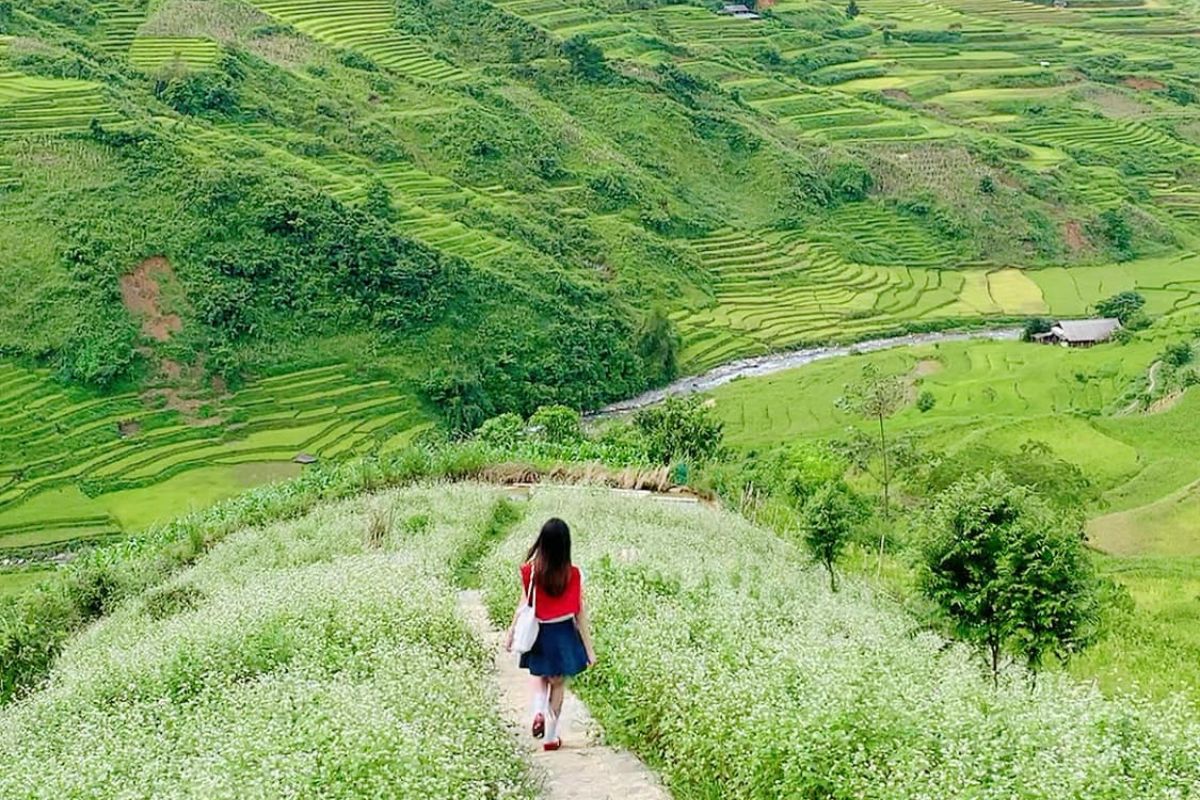
July Walks on Stepped Paths (Source: tracuuquyhoach)
August – The Hills Turn Emerald with Mu Cang Chai Weather
- Temperature: 22°C to 30°C
- Weather: Cool mornings, humid midday, frequent afternoon thunderstorms
Mu Cang Chai’s August weather is green, vibrant, and dramatic. The rice fields are in full growth, creating waves of jade terraces that curl over mountainsides. Though it rains frequently, mornings are bright, perfect for hiking through scenic landscapes and peaceful village walks.
Experience Highlight:
- Hike up La Pan Tan or Lim Mong in the early morning to come across breathtaking green scenery and peaceful contact with farming communities
- Capture ethereal, multi-layered scenery perfect for narrative photography
Travel Tip: Bring a rain poncho, waterproof shoes, and begin early morning trips. Check the Mu Cang Chai weather forecast daily and make quick adjustments accordingly.
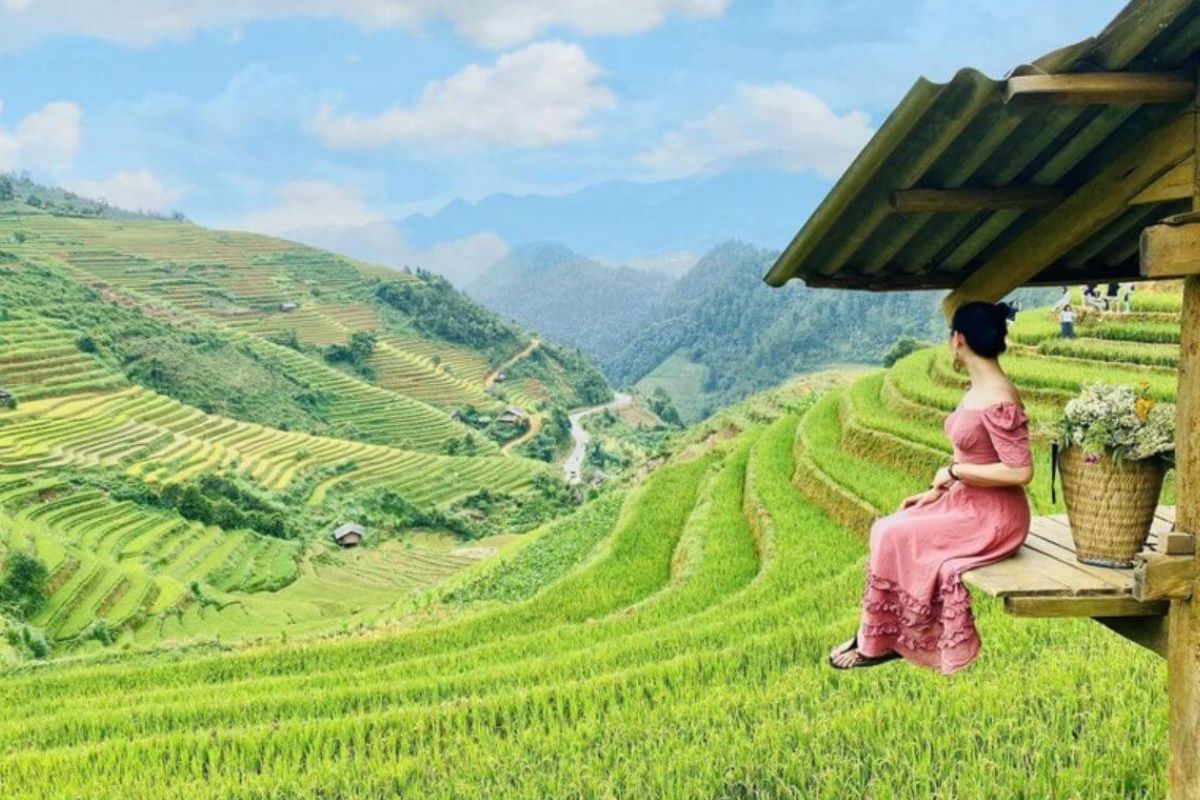
Admire La Pa Tan’s Greenery in August (Source: lug)
September – Golden Season of Mu Cang Chai with Mu Cang Chai Weather
- Temperature: 18°C to 28°C
- Weather: Sunny, dry, crystal-clear skies
This is the time of year the time travelers have been waiting for. September in Mu Cang Chai is a golden rice terraces party. The air is fresh, the light perfect, and the valleys glow gold under the sun. It is harvest time now, with villages full of life, color, and culture.
Experience Highlight:
- Join local harvest rituals or photograph paragliders soaring over the golden La Pan Tan
- Capture the mythical golden staircases that establish Mu Cang Chai as world-famous
Travel Tip: This is the time of high travel. Book accommodations and transportation in advance, especially for weekends. For full travel tips, see our travel guide to the best time to go to Mu Cang Chai or experience the magic of Mu Cang Chai in the harvest season
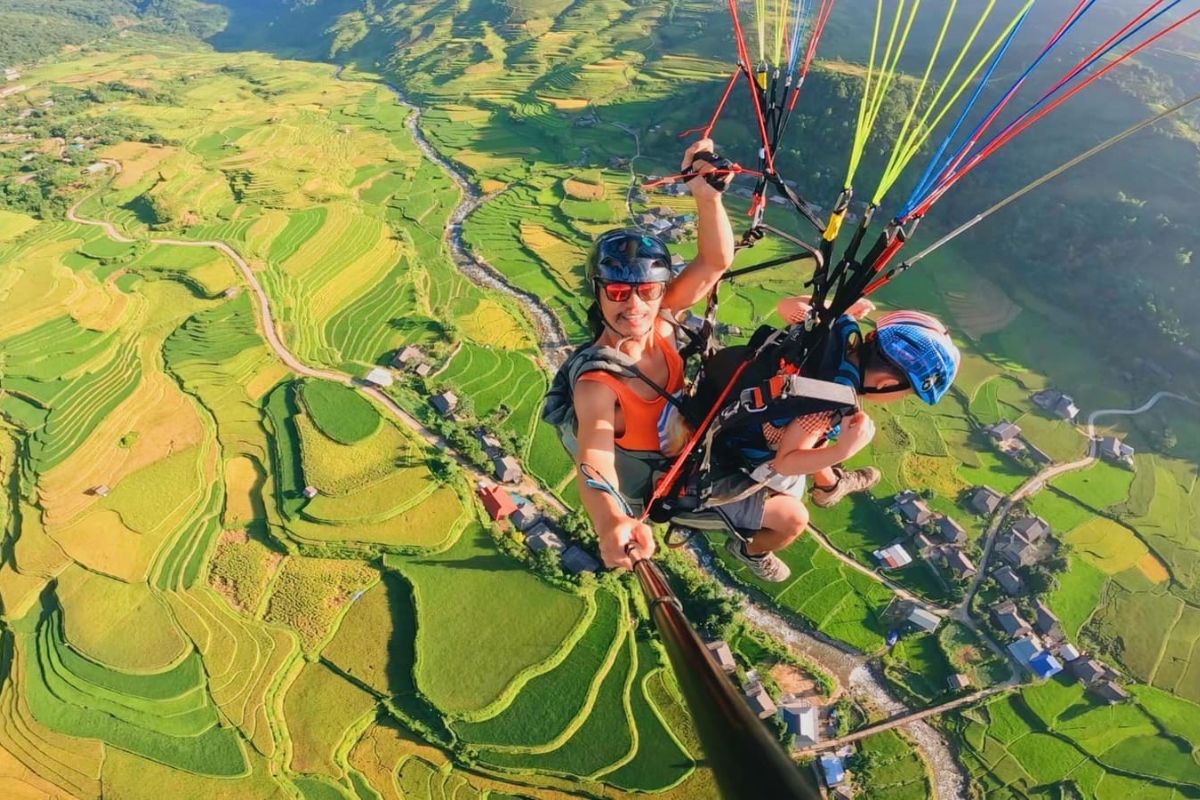
September Paragliding over La Pan Tan (Source: mia)
October – Harvest Ends, Skies Stay Clear with Mu Cang Chai Weather
- Temperature: 16°C to 26°C
- Weather: Cool, dry, light fog in early mornings
October is a gentle transition. With the rice harvest ending, the weather remains cloud-free, and the paths are not very crowded. Mu Cang Chai weather in October is peaceful, perfect for travel at leisure, reflection, and sunrise shoots amidst fog.
The golden fields slowly change to bronze, and the farmers begin to prepare the fields for winter. The rhythm unwinds, and the mountain villages settle down again.
Experience Highlight:
- Indulge in morning mist gliding over terraced hills at Lim Thai
- Enjoy a peaceful homestay close to Tu Le or Ban Thai for a cozy, cultural retreat
Travel Tip: Just perfect for visitors who wish to avoid the crowd but not the wonderful weather. Crisp mornings and pleasant afternoons are ideal for strolls.
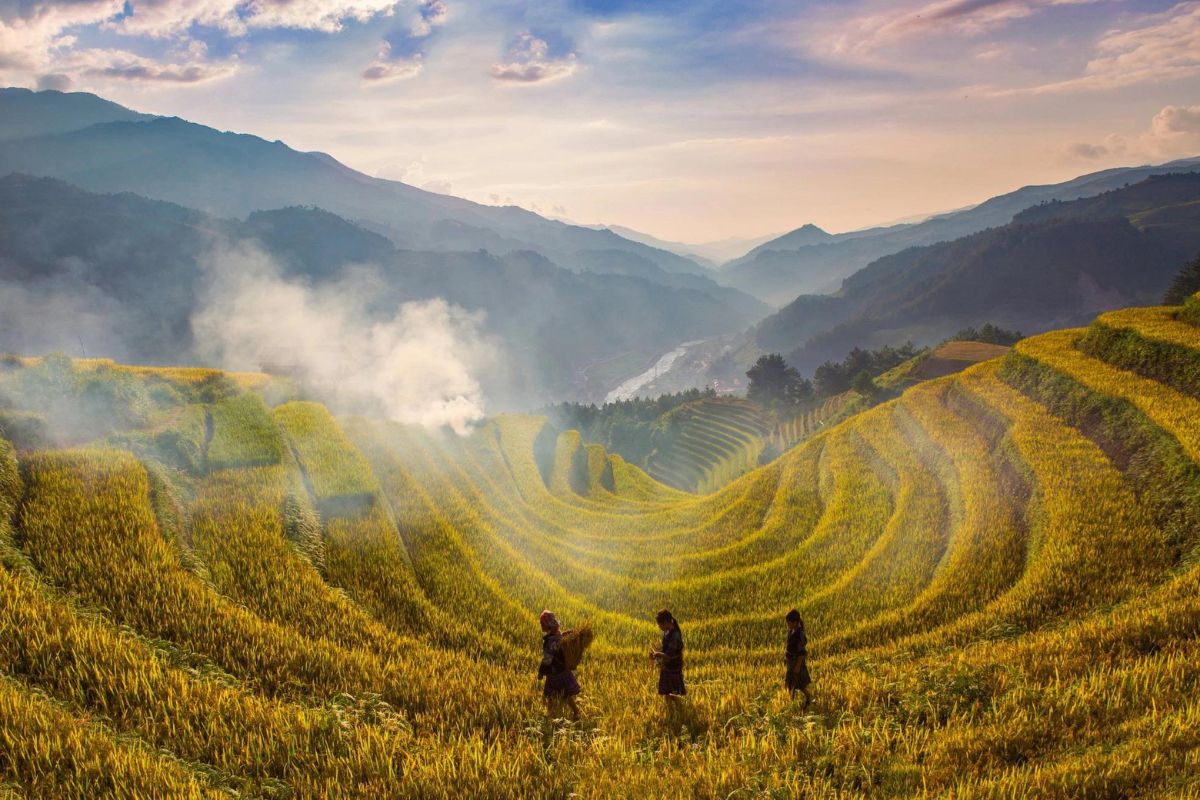
October Mist Glides over Lim Thai (Source: LeChamptule)
November – Chill Sets In, Off-Season Begins with Mu Cang Chai Weather
- Temperature: 12°C to 22°C
- Weather: Cooler, still mostly dry, foggy mornings, longer nights
In November, Mu Cang Chai’s weather is close to winter. Skies remain clear, but the air is decidedly cooler, especially in the evening and early morning. Tourist numbers slow down, giving you access to the region’s deeper layers of culture.
Experience Highlight:
- Stay among local families, relax in herbal baths, and help with post-harvest village tasks
- Shoot less-crowded misty dawns
Travel Tip: Pack a warm coat and long-sleeve layers. September is an excellent month for off-grid travelers and photographers who want to be alone.

Relax in Herbal Baths in November (Source: langnghedoitam)
December – Cold, Quiet & Magical with Mu Cang Chai Weather
- Temperature: 8°C to 18°C
- Weather: Cold mornings, light fog, rare frost possible
December is the quietest—and perhaps most magical—month in Mu Cang Chai. Low-lying mist, cold mornings, and mountain hamlets that glint under pale winter suns define the terrain. Frost erupts every so often at higher elevations and provides magical moments for early risers.
Mu Cang Chai’s December weather invites reflection. Whether you unwind in a Tu Le hot spring or snuggle up beside a fire in a stilt house homestay, this is a season for quiet rest and reflective discovery.
Experience Highlight:
- Unwind in a local hot spring after winter-hike treks
- Capture the surrealism of fog-shrouded rice paddies and wood villages
Travel Tip: Check the weather forecast for Mu Cang Chai daily, especially road conditions. Dress lightly but carry winter accessories for warmth during mornings and evenings.
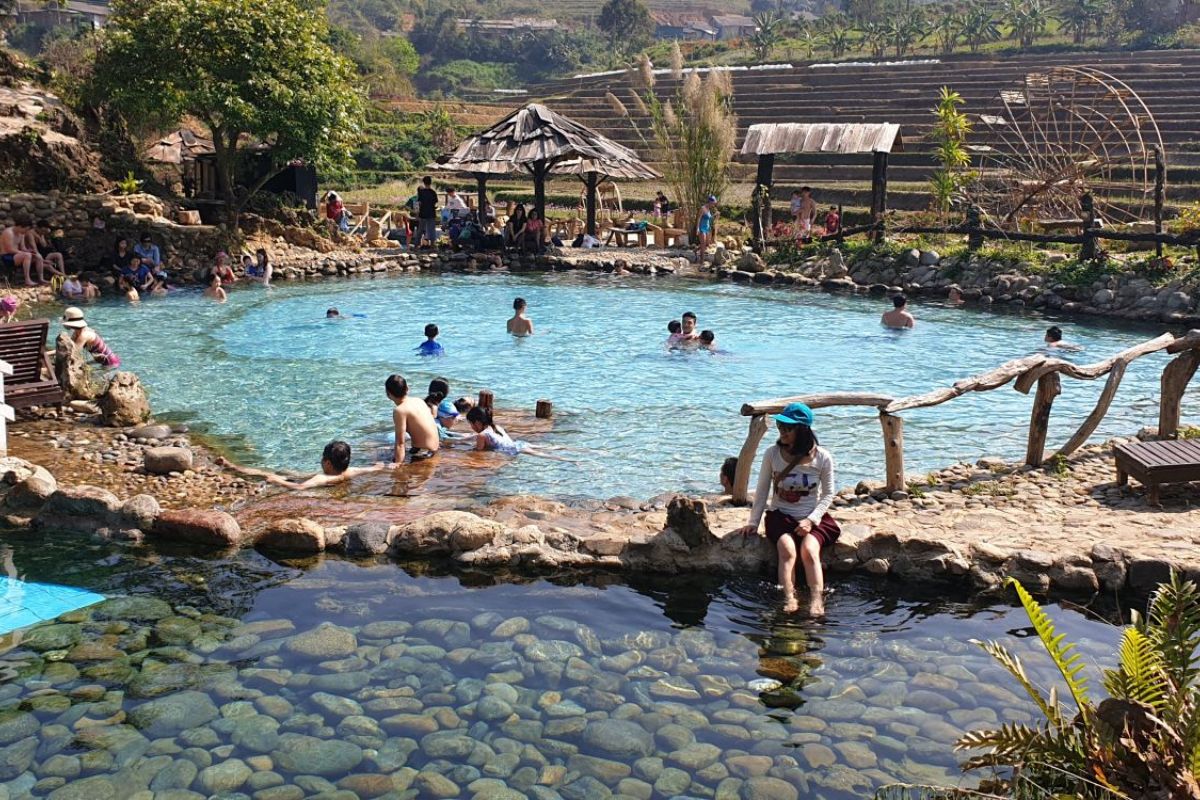
Relax in Tu Le Hot Spring in December (Source: crystalbay)
Best Time to Visit Mu Cang Chai Based on Travel Goals
|
Travel Goal
|
Best Months
|
Highlights
|
Weather Conditions
|
|
See the golden rice fields
|
September – October
|
Peak of the harvest season, golden terraced fields, and traditional festivals. See Mu Cang Chai in the harvest season
|
Mu Cang Chai weather is dry, sunny, and comfortable (~18–28°C). Great for photos, hikes, and festivals.
|
|
See water-filled terraces
|
May
|
Mirror-like flooded paddies during “mua nuoc do”. Best for photographers. See Mu Cang Chai in May
|
Warm (~22–30°C), early summer rains begin. Morning light is ideal for capturing reflections.
|
|
See cherry blossoms (To Day)
|
January – February
|
Wild blossoms bloom across hillsides. Lunar New Year cultural events.
|
Cool to cold (~10–23°C), foggy mornings, dry air. Mu Cang Chai’s weather is crisp and refreshing.
|
|
Avoid crowds & travel off-season
|
March, June, November
|
Great for solo travel or peaceful escapes. Fewer tourists, lower prices.
|
– March: Dry, mild (~20–26°C)
– June: Warm with afternoon rain (~24–32°C)
– November: Cold, dry, ~12–22°C
|
|
Trekking & soft adventure
|
March – April, August
|
Best visibility and trail access. Green fields in August.
|
March–April: Warm, dry (~20–28°C)
August: Cool mornings, frequent afternoon storms (~22–30°C). Check Mu Cang Chai’s weather forecast daily.
|
|
Cultural immersion
|
January, September
|
Local New Year (Tet ), Harvest festivals, ethnic traditions, music, and cuisine.
|
January: Cold (~10–20°C), festive and misty
September: Sunny, golden fields (~18–28°C), culturally rich. See Mu Cang Chai in September.
|
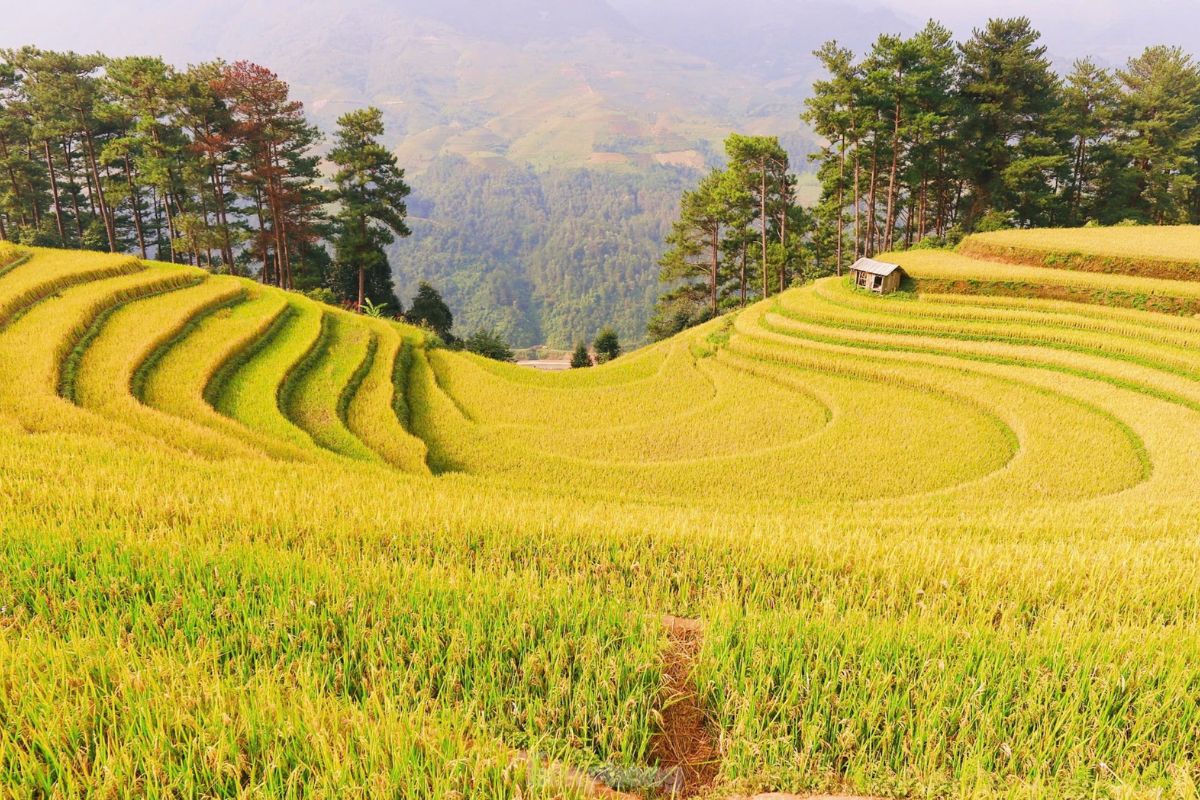
Golden Rice Fields (Source: baoquangninh)
Conclusion
Every tourist has a unique Mu Cang Chai, and it comes down to timing to witness its grandeur. From the fog-shrouded January mornings through to the golden September skies, the Mu Cang Chai weather shapes each journey with its color and character. No matter why you travel – cultural experience, incredible photos, or peaceful retreats, there’s a month for you. Need to book your perfect trip? Check the weather in Mu Cang Chai, select your month, and follow up with Impress Travel’s Mu Cang Chai Tours.
FAQ
What is the weather like in Mu Cang Chai in September?
The weather in Mu Cang Chai in September is warm, dry, and pleasantly cool, ideal for trekking, photography, and harvest festivals. The temperature ranges from 18°C to 28°C, and rainfall is minimal. It’s the best season when rice terraces turn golden and village cultural activities are vibrant. One of the best destinations to visit is Mu Cang Chai.
When to visit Mu Cang Chai?
The best time to visit Mu Cang Chai depends on your purpose of visit.
- For golden rice terraces: September–October
- For flooded terraces: May
- For cherry blossoms: January–February
- For quiet, off-season holidays: March, June, November
- For trekking: March–April or August
- For local celebrations: January (Lunar New Year), September (Harvest)
What is the climate in Mu Cang Chai?
The weather in Mu Cang Chai is a subtropical highland temperate climate. It experiences
- Cool, dry winters (December–February)
- Warm, humid summers (May–August)
- A verdant spring (March–April) and cool autumn (September–November)
What is the weather like in Mu Cang Chai in March?
The weather in Mu Cang Chai in March is nice, dry, and perfect for outdoor exploration. The temperature ranges from 20°C to 25°C, and rainfall is minimal, meaning clear skies and excellent visibility. This makes March an excellent month for trekking, photography, and easy hiking before the onset of rains.







